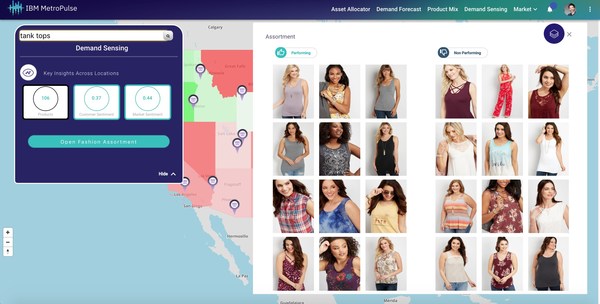Inclusive blockchain-based ecosystem to be designed to enable healthcare companies to build, share, and deploy solutions that drive digital transformation
ARMONK, N.Y., — Aetna, Anthem (NYSE: ANTM), Health Care Service Corporation (HCSC), PNC Bank (NYSE: PNC) and IBM (NYSE: IBM) today announced a new collaboration to design and create a network using blockchain technology to improve transparency and interoperability in the healthcare industry. The aim is to create an inclusive blockchain network that can benefit multiple members of the healthcare ecosystem in a highly secure, shared environment. The goal is to allow the blockchain network to enable healthcare companies to build, share and deploy solutions that drive digital transformation in the industry.
Despite major initiatives to digitize healthcare information, major improvements in transparency and interoperability among various groups in the healthcare system are still necessary. By reducing administrative errors and friction through the application of blockchain technology, healthcare information could be exchanged more efficiently. These improvements, once realized could help enhance patient care and reduce unnecessary costs.
The collaboration members intend to use blockchain to address a range of industry challenges, including promoting efficient claims and payment processing, to enable secure and frictionless healthcare information exchanges, and to maintain current and accurate provider directories.
“We are committed to improving the healthcare consumer experience and making our healthcare system work more effectively,” said Claus Jensen, chief technology officer at Aetna, a CVS Health business. “Through the application of blockchain technology, we’ll work to improve data accuracy for providers, regulators, and other stakeholders, and give our members more control over their own data.”
“At Anthem, we recognize the importance of driving change that will simplify the healthcare system for all Americans,” said Rajeev Ronanki, Chief Digital Officer of Anthem, Inc. “We view Blockchain as an enabler for establishing trust. Timely access to medical information has been a stumbling block for creating a seamless consumer experience. With a trusted foundation based on transparency and cryptography, we will provide a faster, safer and more secure way to exchange medical information to transform the consumer healthcare experience.”
“HCSC is continuously exploring how technology and data can improve the lives of our members by reducing fragmentation of information and connecting parts of the health care system,” said Steve Betts, senior vice president and chief information officer, HCSC. “We are proud to be part of this collaboration focused on enhancing technical knowledge, understanding capabilities and unlocking the possibilities to drive quality, affordable care.”
“Blockchain’s unique attributes make it suitable for large networks of members to quickly exchange sensitive data in a permissioned, controlled, and transparent way,” said Lori Steele, general manager for Healthcare and Life Sciences for IBM. “The fact that these major healthcare players have come together to collaborate indicates the value they see in working together to explore new models that we think could drive more efficiency in the healthcare system and ultimately improve the patient experience.”
“This collaboration will enable healthcare-related data and business transactions to occur in way that addresses market demands for transparency and security, while making it easier for the patient, payer and provider to handle payments” said Chris Ward, head of product, PNC Treasury Management. “Using this technology, we can remove friction, duplication, and administrative costs that continue to plague the industry.”
Aetna, Anthem, HCSC, PNC Bank, and IBM are actively working to further define the initial use cases for the health utility network. The collaboration will add additional members to the network in the coming months including other health organizations, healthcare providers, startups, and technology companies.




